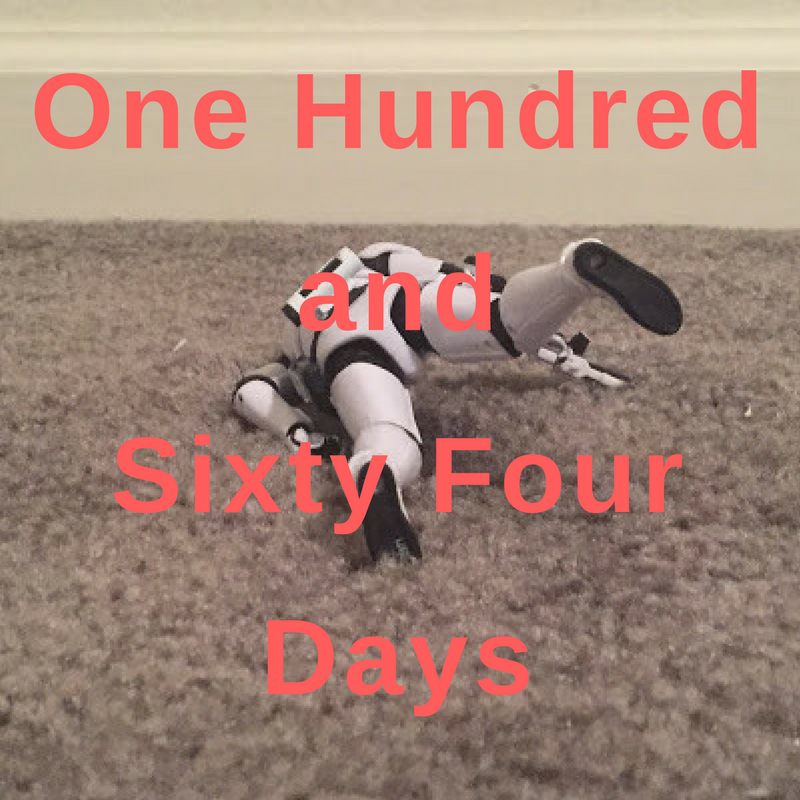10. X-Force
By Peter Milligan and Mike Allred
The desire for fame is one of the oldest urges in human society, hardwired into our cultural DNA stretching all the way back to Gilgamesh and Achilles. It's a primal urge, a yearning for significance and symbolic immortality in the face of certain (mostly) inescapable facts of human existence: mediocrity, anonymity and death. The invention of celebrity, however, is a more recent development. Contemporary society did not invent celebrity but we've certainly perfected the phenomenon to an absurd degree.
X-Force, in its original incarnation under Rob Liefeld, is one of the most significant books of the 1990s. Unfortunately, its significance is almost wholly negative: it was, in a word, terrible, and is a vital touchstone for anyone wanting to comprehend the very worst impulses of an entire generation of mainstream comics creators and readers. X-Force was borderline illegible. But it sold in the millions, amazingly enough, and its success - more than any other book of the era, I'd argue - paved the way for the very worst of what was soon to follow.
When Liefeld left Marvel in 1992 to cofound found Image, he left X-Force in even more of a shambles than it had originally been. His new Image book - the young company's very first release - was Youngblood, a book even worse than X-Force, shorn of what little charm had been endowed by the latter book's inherited context within the beloved X-Men franchise. The premise was simple enough: Youngblood was a team of government-sponsored superheroes who lived as celebrities in our current (or, current as of 1992) media-saturated landscape. It should go without saying that Liefeld's reach wholly exceeded his grasp, and whatever potential this concept may have had in its earliest days was left entirely unfulfilled by the finished product.
Fast forward another decade. Rob Liefeld has dwindled away to deserved near-obscurity; X-Force has floundered following year after year of successively duller stories (what had been under Liefeld at least passionate crap had become more of the same truly mediocre crap); and Marvel, fresh from the near-death experience of the late 90s and under new management, has suddenly decided to upend their entire apple-cart. The existence of books like Milligan & Allred's X-Force singlehandedly redeems every other boneheaded decision made in the heady days of "Nu-Marvel." For the historical record, there was also Grant Morrison's challenging - if ultimately anticlimactic - output on New X-Men and Marvel Boy, Morales & Baker's underrated Truth, the first volume of Brian K. Vaughn's Runaways. A few great comics makes up for, say, the gay-baiting Rawhide Kid, Marville, "U-Decide", and - well, off the top of my head, I'm thinking that the Silver Surfer series they did that didn't actually feature the Silver Surfer is pretty representative as well. Throwing things up against the wall to see what sticks results mostly in shit-covered wallpaper, but occasionally a few nuggets adhere.
Milligan & Allred pick up on the outskirts of the thematic territory Morrison was staking in New X-Men: mutants have become ubiquitous and are increasingly mainstream, updating the original minority metaphor to represent the changed reality of - if not a "post-racial" nation (whatever that means!) - at least a nation wherein racial and sexual minorities have as much right to the public spotlight as any straight WASP. The new X-Force is, fittingly, the book that Youngblood might have been in a different, kinder universe. The new X-Force begins with as gutsy an opening salvo as any comics since Alan Moore's "Anatomy Lesson" remade Swamp Thing, and I think the comparison holds up significantly: in both cases, these "bold new directions" turned a somnolent franchise upside down in the most violent way possible, but in doing so shone a light on lost potential that had been there from the very beginning, unnoticed.
The first issue of the relaunch, #116, sets up the book's new premise, introducing an entirely new team of mutants . . . and then butchering all but two of them. It's horrific: not merely because it's shocking (and it definitely was shocking on first release), but because Milligan is cruel enough to spend an entire issue building up a group of faux "heroes" whose petty avarice was rivaled only by their incompetence, and then annihilate them wholesale. Sluk and Gin Genie aren't given any opportunity to redeem themselves/ Fame is a meat grinder, and the hapless members of X-Force are every bit as likely to end up as literal hamburger as their counterparts in the worlds of teen pop and prime-time soap operas are to end up in rehab. These characters have made, we see, an irrefutably Faustian bargain: in exchange for being on the cover of magazines and having statues in franchise restaurants, they're tools of the military-industrial complex, hired killers fighting terrorists, mass murderers and other "enemies of the state." It's not even that the members of X-Force have traded anything significant for their material gain: they don't have any ethical organs whatsoever, they are nothing more than the product of their appetites (for fame, money, sex), appetites that are ruthlessly exploited for the benefit of nationalistic, militaristic corporatism.
The book's great progression, we see, occurs only after the initial X-Force team has been destroyed, and the replacements have been recruited: among them, Mr. Sensitive, a Zen warrior whose powers necessarily imply pacifism and reason, and the Anarchist, a parody of the self-righteous angry black celebrity (think LeBron James). Over the course of the run, X-Force develops a conscience, and in the process the strangest transformation occurs: characters who had been repulsive and venal reveal themselves as more than merely the sum of multiple stereotypes. The book begins by wallowing in action movie stereotypes - such as one might find in the most casually, unselfconsciously jingoistic military triumphalism - and slowly peels away the layers of bravado until all that's left, in the final pages, is a very real fear of death - not the Technicolor mass slaughter of the early issues, but a personal and wrenching, intimate death, the opposite in every way from the callow fame and fortune that initially characterizes the team. Of course it's the character you love the most who ultimately has to die: it could never be any other way.
Mike Allred would not have been anyone's first choice for an X-book, and yet here delivers some of the best work of his career specifically because it is so doggedly committed to effacing expectations. The most gruesome spectacle appears as both horrifying and strangely attractive, candy-colored intestines and super-deformed mutant freaks illustrated with the loving and slightly goofy detail of a Ramona Fradon Metamorpho story (tellingly, Allred would later illustrate a Metamorpho story for DC's Wednesday Comics anthology). One of the book's most telling features is the conscious decision to appeal to - if not a direct stylistic homage - at least a general notion of a "Silver Age" feel, somewhere between Bruno Premiani and Ross Andru. The juxtaposition between style and content contributes to the generally queasy atmosphere, half palpable dread and half sublime absurdity.
The new X-Force was far more violent and sexual than Liefeld's original vision of the series - it's worth remembering that this is also the book that served as the catalyst for Marvel's decision to sever ties with the Comics Code Authority - but the sex and violence served far more of a purpose than mere titillation. The closest comparison that occurs is Bret Easton Ellis, particularly Glamorama - another exploration of fame and celebrity, another book predicated on the idea that these concepts have become corrosive and alienating forces within the contemporary body politic. Milligan connects many of the same dots Ellis does, bridging the gap between amoral celebrity culture, psychological trauma and unreasoning violence with a frightening clarity. It's brutal, but so is fame as a phenomenon: in exchange for eliding the ego barriers separating the individual from the panoptic gaze of hungry celebrity culture, the individual becomes less a person than a sign, a symbol of a commodity, plastic, able and willing to be manipulated and mutilated in the service of the market.
By any measure the last decade was a good one for superhero comics - as crass and distasteful as much of the more popular mainstream product became, there was a profusion of interesting, eccentric and worthwhile work done in and around the margins. For those with the patience to whether the storms of increasingly cynical marketing gimmicks and never-ending crossovers, the rewards were great - the aforementioned Nu-Marvel books, Automatic Kafka, Powers, Promethea, to name just a few. You could even say that the genre redeemed itself after the poor showing of the previous era. But even in strong company, X-Force is still the best superhero comic of the decade - nothing else comes close.
This list is composed of English language comic books originally released between 2000 and 2009.
Amazingly, Miligan and Allred's work on X-Force appears to have fallen out of print. It was originally compiled into a single, huge hardcover entitled Famous, Mutant and Mortal, which is currently available new from between $235 and $600 on Amazon. A mere pittance! (That is the version I own, although I also bought the individual issues in serialized form as they were released.) Although that is probably the best format available for the series, it was also released in two smaller softcover trades - the unimaginatively titled New Beginning and Final Chapter. These also appear to be out of print, but available for a far more reasonable price than the hardcover.





No comments :
Post a Comment